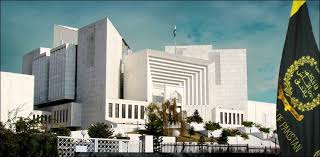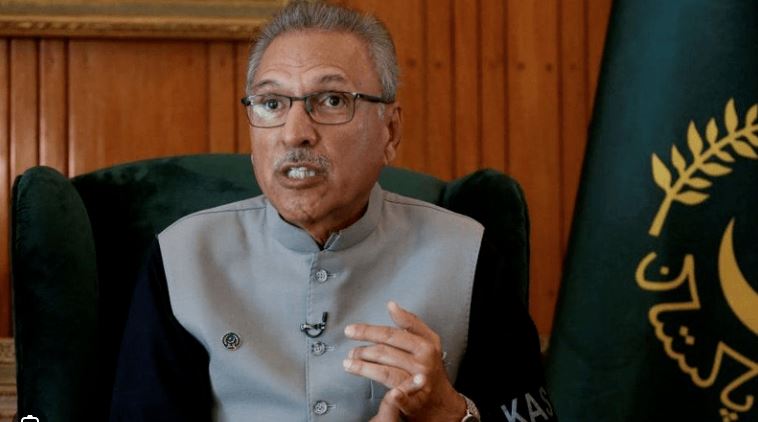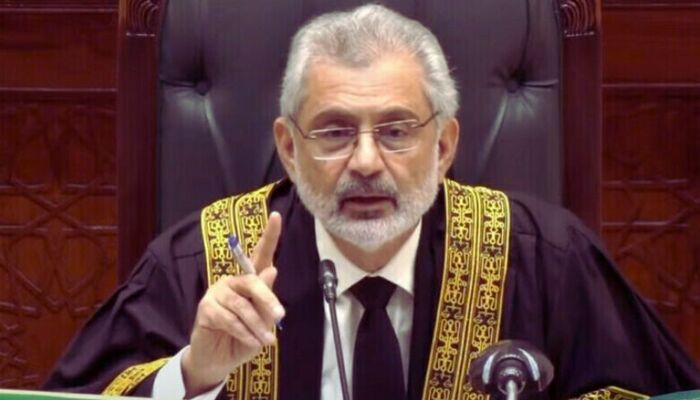This significant ruling, announced on Thursday
alters the landscape of parliamentary
voting and party loyalty

Islamabad: The Supreme Court of Pakistan has unanimously accepted a review petition concerning its 2022 verdict on the defection clause under Article 63(A) of the Constitution. This significant ruling, announced on Thursday, alters the landscape of parliamentary voting and party loyalty.
Key Changes in Voting Protocol
In its May 17, 2022 decision, the Supreme Court had declared that votes cast against parliamentary party lines in four key instances outlined in Article 63(A) would not be counted. These instances include:
- The election of the Prime Minister and Chief Minister
- Votes of confidence or no-confidence
- Constitutional amendment bills
- Money bills
The latest ruling means that future ballots from lawmakers who defy party policy will now be counted, which could provide substantial support for the government in pushing through constitutional amendments, many of which impact the judiciary.

Background of the 2022 Ruling
The 2022 ruling was a result of a presidential reference filed by then-President Arif Alvi, leading to a split 3-2 decision. The majority opinion was authored by then-Chief Justice Umar Ata Bandial, Justice Ijazul Ahsan, and Justice Munib Akhtar. In contrast, Justice Mazhar Alam Khan Miankhel and Justice Jamal Khan Mandokhail dissented, arguing that further interpretation of Article 63(A) would amount to “rewriting the Constitution.” The Supreme Court Bar Association (SCBA) contended similar points in their review petition.
Supreme Court’s Review Hearing
During the review hearing, led by Chief Justice Qazi Faez Isa, a five-member bench included Justices Mandokhail, Miankhel, Naeem Akhtar Afghan, and Aminuddin Khan. Justice Afghan replaced Justice Akhtar, who opted out due to reservations about a recent ordinance affecting bench formation.
Chief Justice Isa critiqued the original bench’s opinion and dismissed objections raised by Zafar, counsel for Imran Khan. Zafar initially expressed reluctance to proceed without allowing his client to appear via video link, but he agreed to assist the court after the chief justice’s insistence.

Reactions from Legal Experts
Lawyers have hailed the verdict but expressed skepticism regarding its timing. Barrister Asad Rahim noted that many legal professionals disagreed with the 2022 ruling, suggesting it was difficult to interpret how the Constitution prohibited counting votes from dissenting legislators. He pointed out that the review petition came shortly after a failed constitutional amendment aimed at restructuring the Supreme Court.
Another lawyer, Basil Nabi Malik, called the decision “correct” but cautioned that the timing could overshadow its validity. Barrister Yasser Latif Hamdani argued that the previous interpretation amounted to a “rewriting of the Constitution,” asserting that the original decision was illogical.
Implications of Article 63(A)
Article 63(A) aims to restrict the voting powers of lawmakers, binding them to the decisions of their party head. If violated, the penalty includes disqualification from the National Assembly and loss of the lawmaker’s seat.
This recent ruling clarifies the application of Article 63(A) and its impact on parliamentary proceedings, particularly regarding defection and dissent among lawmakers. As the political landscape evolves, the ruling could have profound implications for party dynamics and legislative processes in Pakistan.























